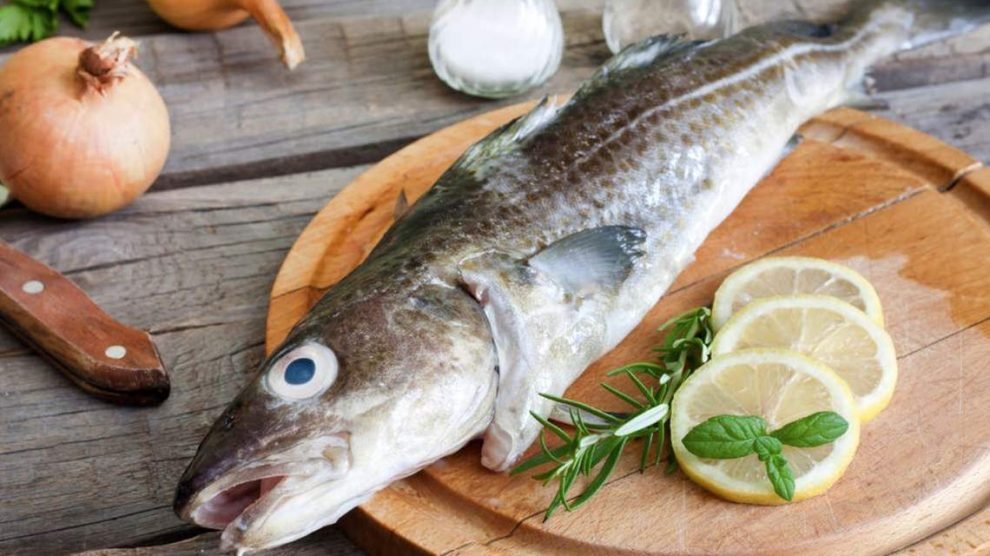Cod benefits, and information on its different nutritional properties, a white fish that is especially rich in protein, vitamins and minerals.

Who has not ever tried a delicious cod with salt or sauce? The truth is that it becomes one of the most appreciated fish, which belongs to the Gádidos family (the same family that also includes fish as consumed as pollock, pout or other lesser known ones such as brótola or saithe).
They are fished in cold seas, locating them mainly in the North Atlantic. In relation to the months of season in which we can find it in the fishmonger, the months of December, January, February, March, April and May stand out above all. Although today it is true that we can find it practically throughout the year.
What is cod? A delicious and nutritious white fish
The cod is a white fish highly prized in the kitchen for its texture and versatility in drawing with him a wide variety of recipes, from a nutritional point of view, the interesting protein quality, and low calorie, which is why it is usually common to find it as the main food on the menu of many weight loss diets.
Scientifically it is known by the name of Gauds Morgue, belonging to the Gádidos family, the same family to which such popular and well-known fish belong, for example it could be the case not only of pout or haddock, but also of hake.
It is a species that we find in cold seas, certainly preferably in the North Atlantic, as we mentioned at the beginning of this note. From a culinary point of view, its meat has a rather fine texture, which is perfectly combined with its delicate flavor. For these reasons it is highly valued in the kitchen of many chefs (and also in many homes in our country).
Cod nutritional properties
From a nutritional point of view, the truth is that cod is a white fish that stands out precisely for its very low fat content. In fact, cod tends to reserve its fat above all in the liver, which -in fact- is used for the manufacture and elaboration of fish oil.
In relation to the meat of the cod, we find that it is a delicious food especially rich in proteins of high biological value. In addition, it also provides vitamins (especially vitamins of group B, vitamin A, D and E), as well as minerals (potassium, phosphorus, zinc, magnesium and sodium).
100 grams of fresh cod provide:
| Calories | 74 kcal |
| Protein | 17 g |
| Carbohydrates | 0.1 g |
| Total fat | 2 g |
| Fiber | 2 g |
| Vitamins | Input | Minerals | Input |
| Vitamin A | 10 mcg | Iron | 0.4 mg |
| Vitamin B9 | 13 mg | Match | 180 mg |
| B12 vitamin | 0.54 mg | Magnesium | 20 mg |
| Vitamin D | 1.3 mcg | Potassium | 275 mg |
| Vitamin E | 0.26 mg | Zinc | 0.4 mg |
What benefits does cod offer us?
Cod is an extremely suitable and beneficial white fish in a varied, healthy and balanced diet, thanks to the fact that it is a healthy food that is especially rich in quality proteins, vitamins and minerals, and low in fat and carbohydrates.
Precisely among these vitamins, vitamin A and vitamins of group B stand out (among them folic acid, so essential in pregnancy); and among the minerals phosphorus, potassium and zinc stand out (beneficial for those men who wish to improve their fertility).
Due to its low caloric content and its energy value (just 74 calories per 100 grams of fresh cod) and its low fat content (2 grams per 100 grams), it is an excellent option in weight loss diets. In fact, cod’s fat reserves tend to be stored in its liver, which is used to obtain fish oil.
It also becomes an excellent source of good quality protein. And what are good or high quality proteins? They basically consist of proteins that contain essential amino acids, which are those that our body is not able to manufacture from food, and must therefore be provided through the diet.































